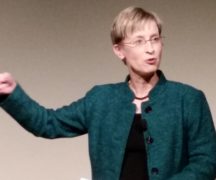By JAN LARSON McLAUGHLIN
BG Independent News
Jamie Piltch’s search for the true definition of a good citizen brought him to Bowling Green.
Piltch, 23, is on a trek through the so-called rust and sun belts of the U.S. to discover whether Americans still care about being good citizens.
His journey started in Washington, D.C., in May, then on to Mercersburg, Pennsylvania, Pittsburgh, then Bowling Green. From here, the recent Harvard grad was headed to Detroit, Saginaw, South Bend, Chicago, then onto Wisconsin and Iowa before heading south.
Along the way, Piltch, is interviewing all types of people about their views on citizenship. Some of those interviews – including some done here in Bowling Green – are being posted on his blog www.citizensstory.com.
He sat down at Grounds for Thought and talked with business owner Floyd Craft and city attorney Mike Marsh. While in Bowling Green, he also spoke with an Afghanistan war veteran, a soon-to-be naturalized citizen, and a secretarial assistant at BGSU. Their views on citizenship can also be found on Piltch’s blog.
Piltch, originally from Bryn Mawr, Pennsylvania, hasn’t always fascinated by the meaning of being an American citizen.
“Like most young people, I spent the first 20 years of my life mildly disinterested in politics. I voted in the 2012 presidential election, a moment of personal pride. But, outside of getting my license, I didn’t really interact with the government. I never voted in a local election and rarely thought about my town’s needs. I didn’t even consider doing those things.”
However, he is the son of two teachers, steeping him in “nerd” genes.
“During college, though, I took a class on American democracy that changed my feelings about politics. Class discussion made it clear to me that normal, everyday citizens like myself mattered,” he said.
“I spent my final half of college learning about citizenship. I read about citizens’ duties and tried to figure out how we could all be good citizens. More than anything, I tried to learn whether people still cared about being good citizens.
“As I approached graduation, I wanted answers. I wanted to know the state of American citizenship and who we are as a country.”
Piltch approached the topic with some trepidation based on the current political climate. He feared that the image of America as a polarized nation would be all he found on his journey.
But that has not been the case – he found plenty of common ground.
“People no matter their party, their race, their religion, they believe in freedom, respect, charity, helping others, engagement in politics, service and equality,” Piltch said. “We agree on more than we think.”
“It makes me want to keep going,” Piltch said.
Piltch has a series of questions that he has memorized after a month on the road. Do you think you are a good citizen? Can people of the opposite political party be good?
So far, about half of the people he approaches take time to talk with him.
“They may say, ‘Fine. I’ll talk to you for five minutes.’ Then they talk forever,” Piltch said with a smile.
Piltch is trying to stay at the homes of people in the community along his journey. “I feel like I get a more genuine feel” for the community, he said. In Bowling Green, he said with the grandparents of a friend – Lou Katzner.
The most interesting quote Piltch has heard so far came from a long-time Republican. “I feel like the people of my party would say I’m a traitor,” she told Piltch.
Then there was the military officer who served in Afghanistan. He talked about the difficulty starting and maintaining a Democratic culture. “It just felt a lot more legitimate, coming from him,” Piltch said.
Piltch, a history major at Harvard, was also surprised at the references to slavery and Native Americans by some. “Many of the Trump supporters have said we need to be more honest about the problems of the past,” he said. “As a history major, that really surprised me.”
Once he completes his journey and his collection of citizenship stories, Piltch wants to take the blog posts and compile them into a book.
“The hope is to write a book, but that is a lofty goal,” he said. He may settle for pitching it as a magazine story. And then, he plans to teach high school or middle school social studies – perhaps sharing some of the information he gathered across America.
“We don’t talk about this enough,” Piltch said.





